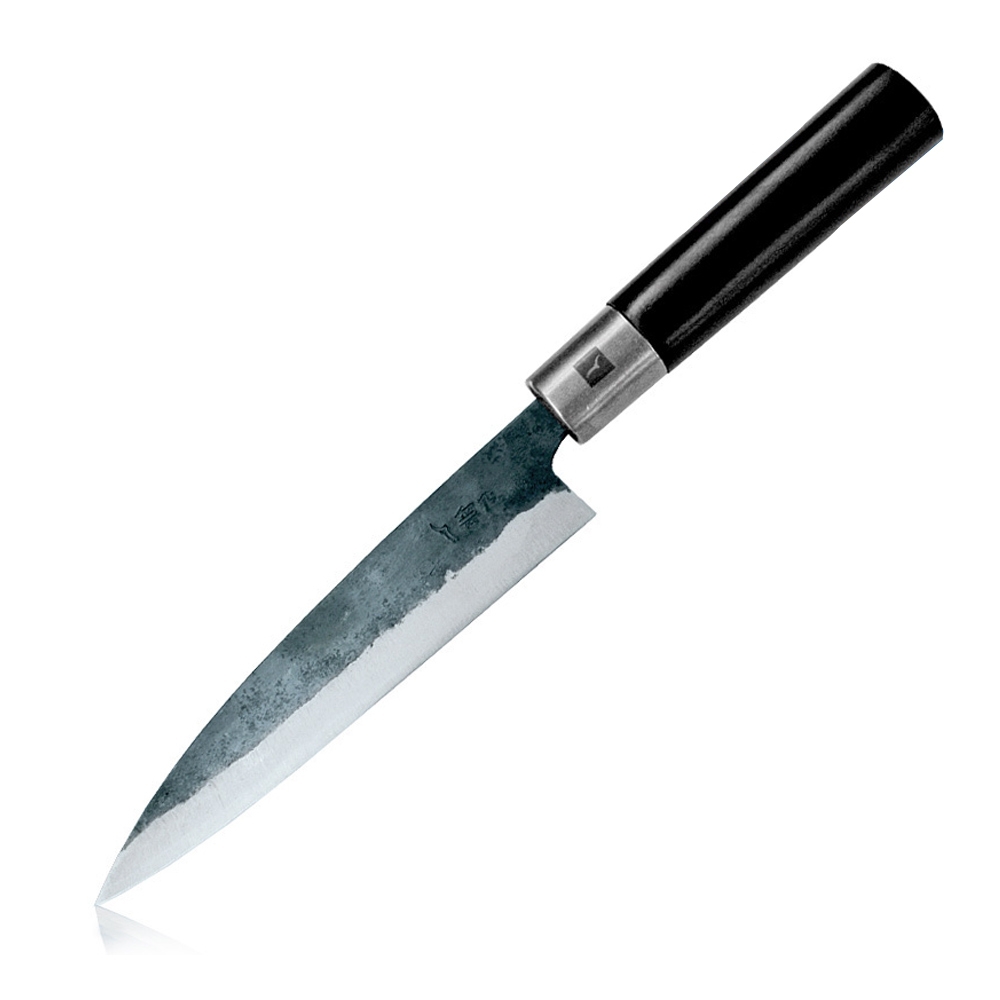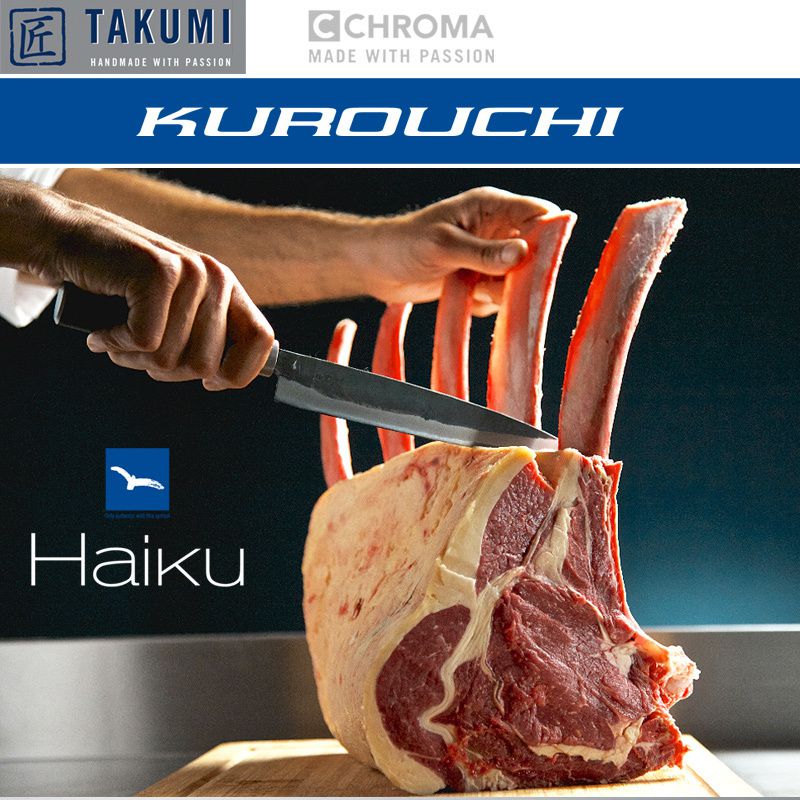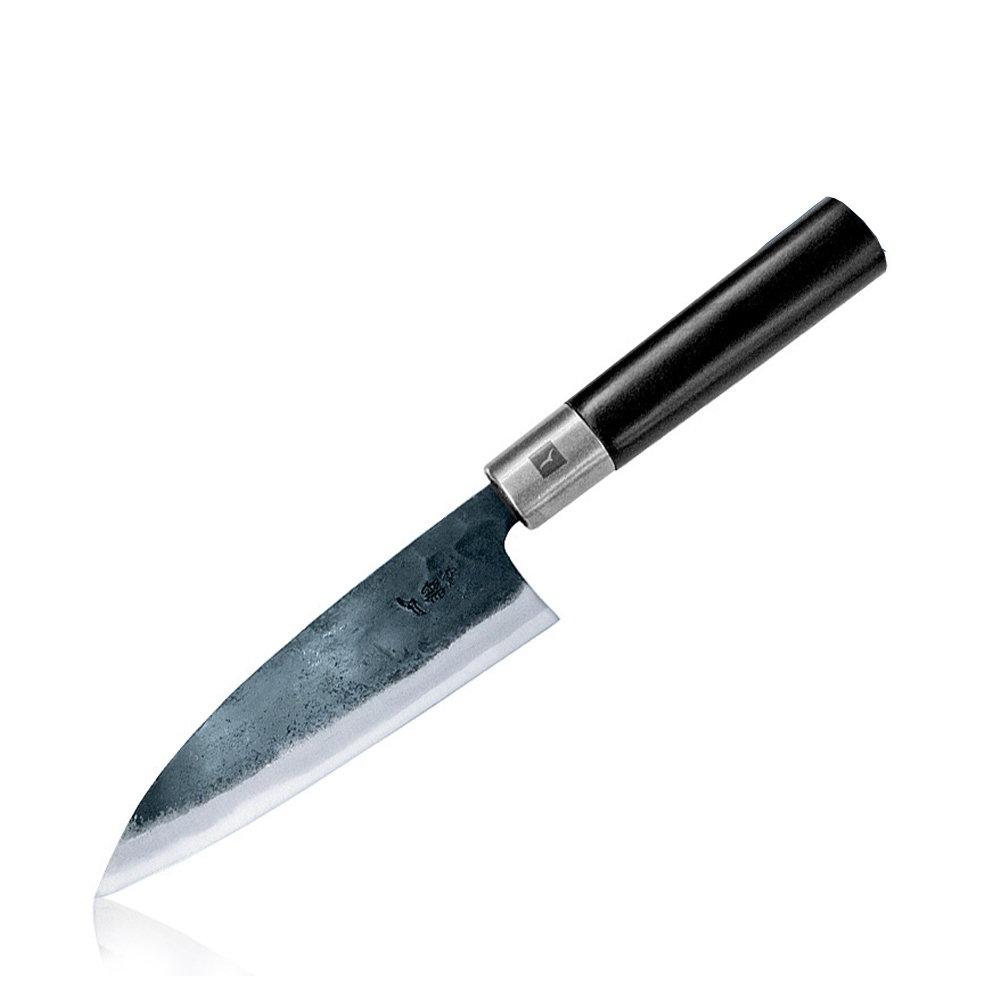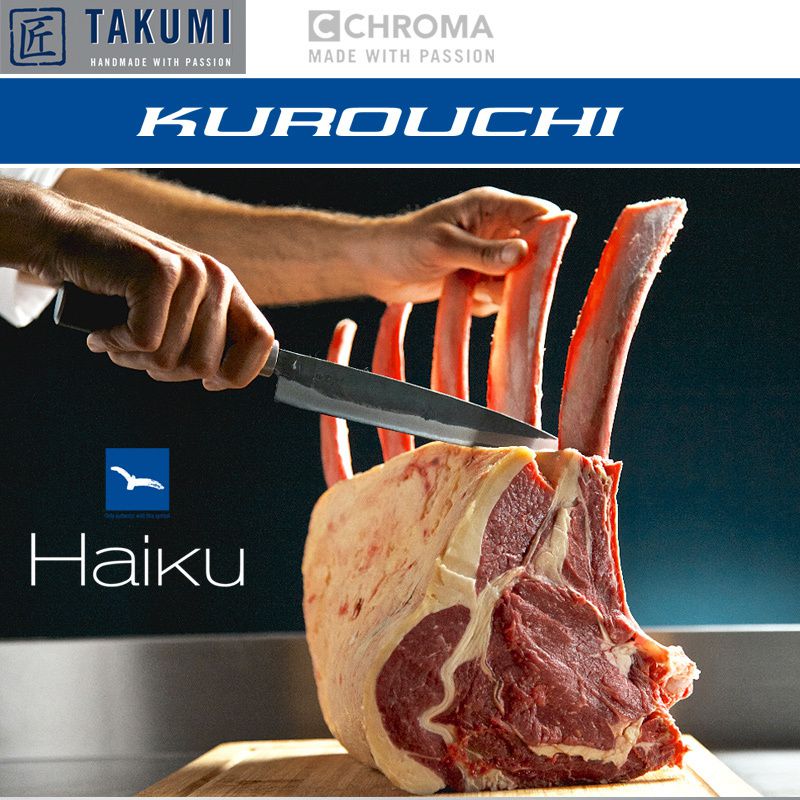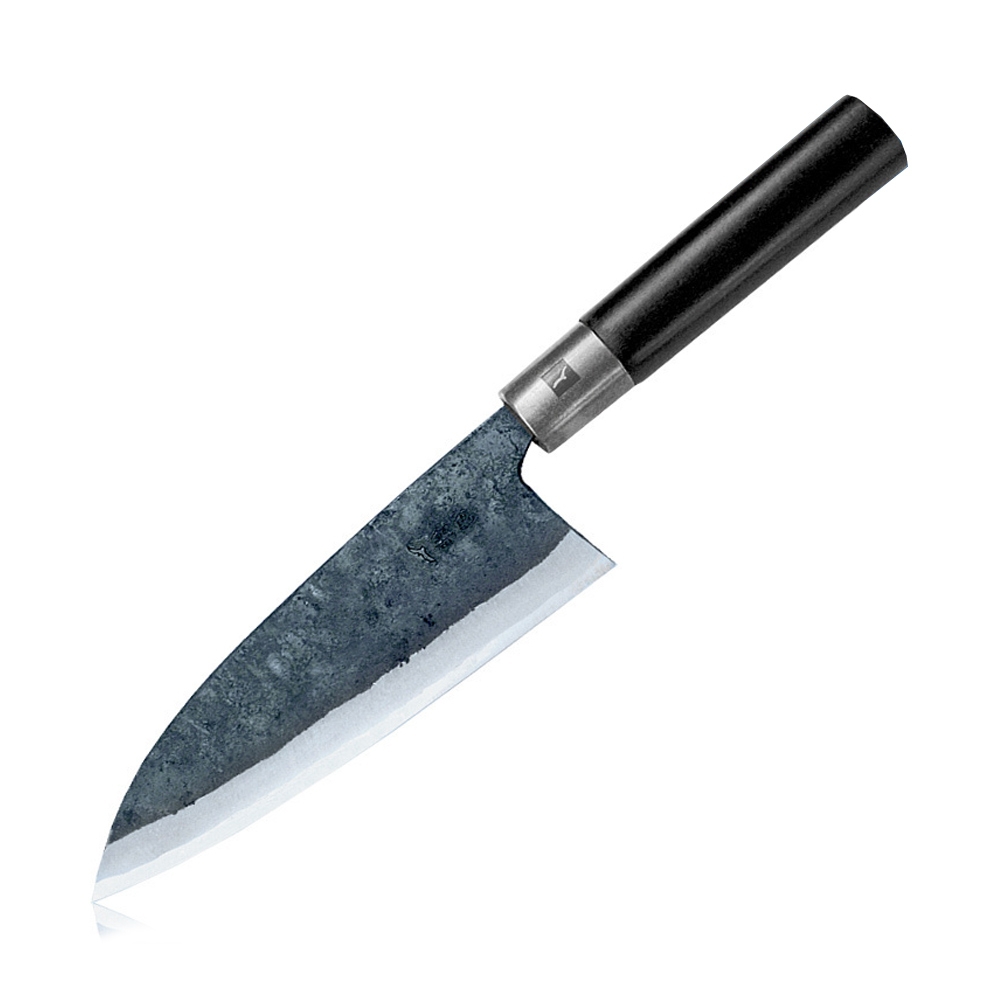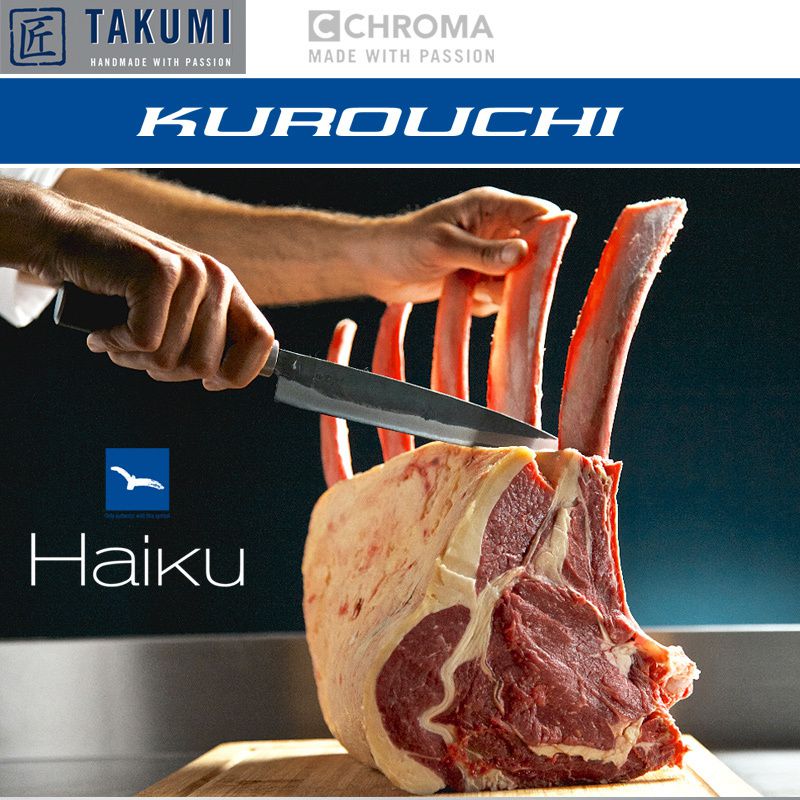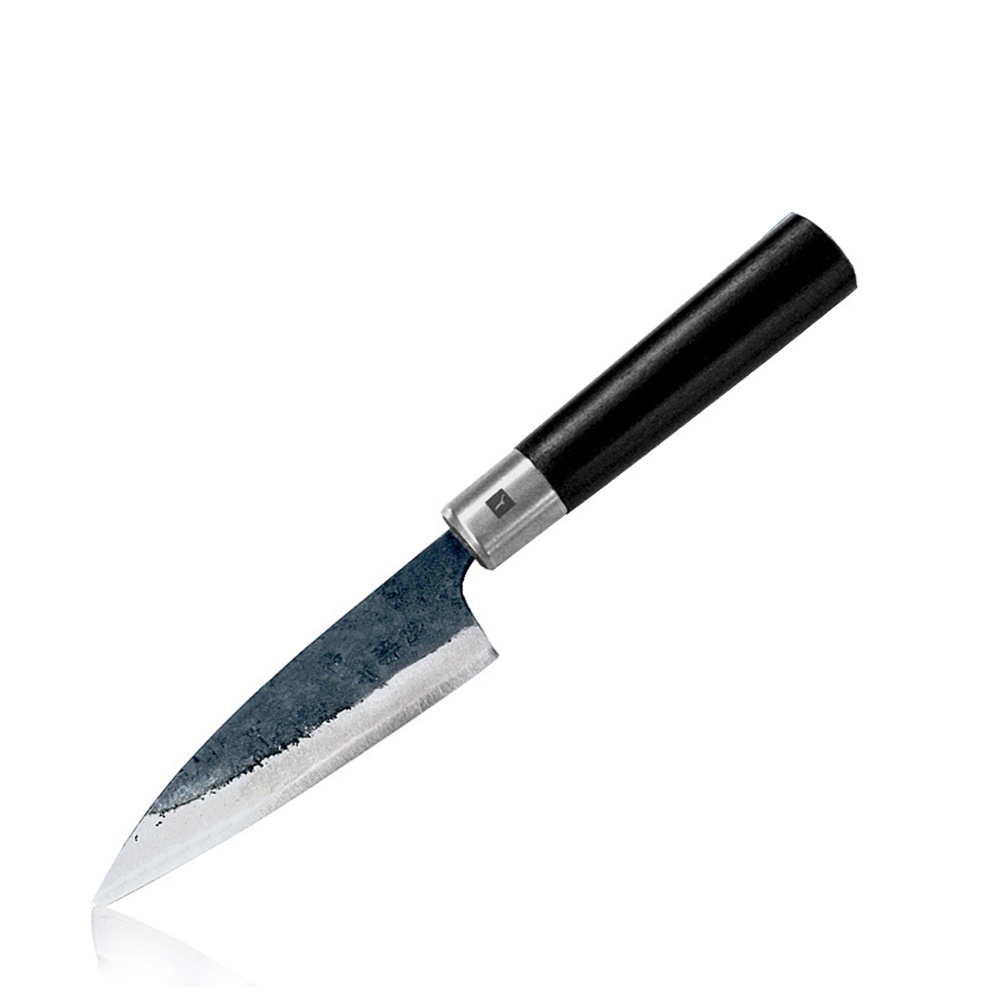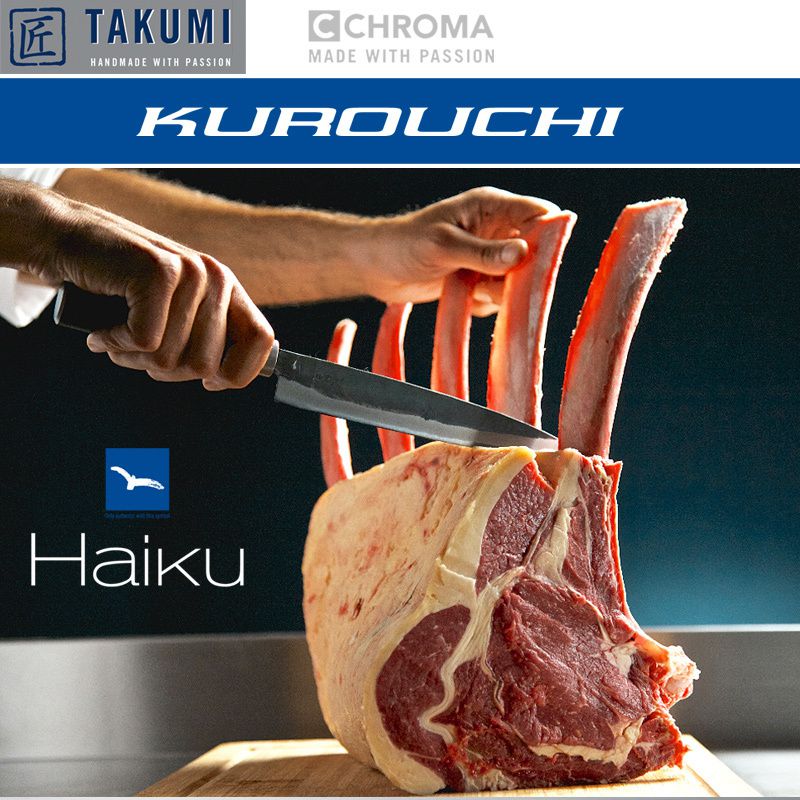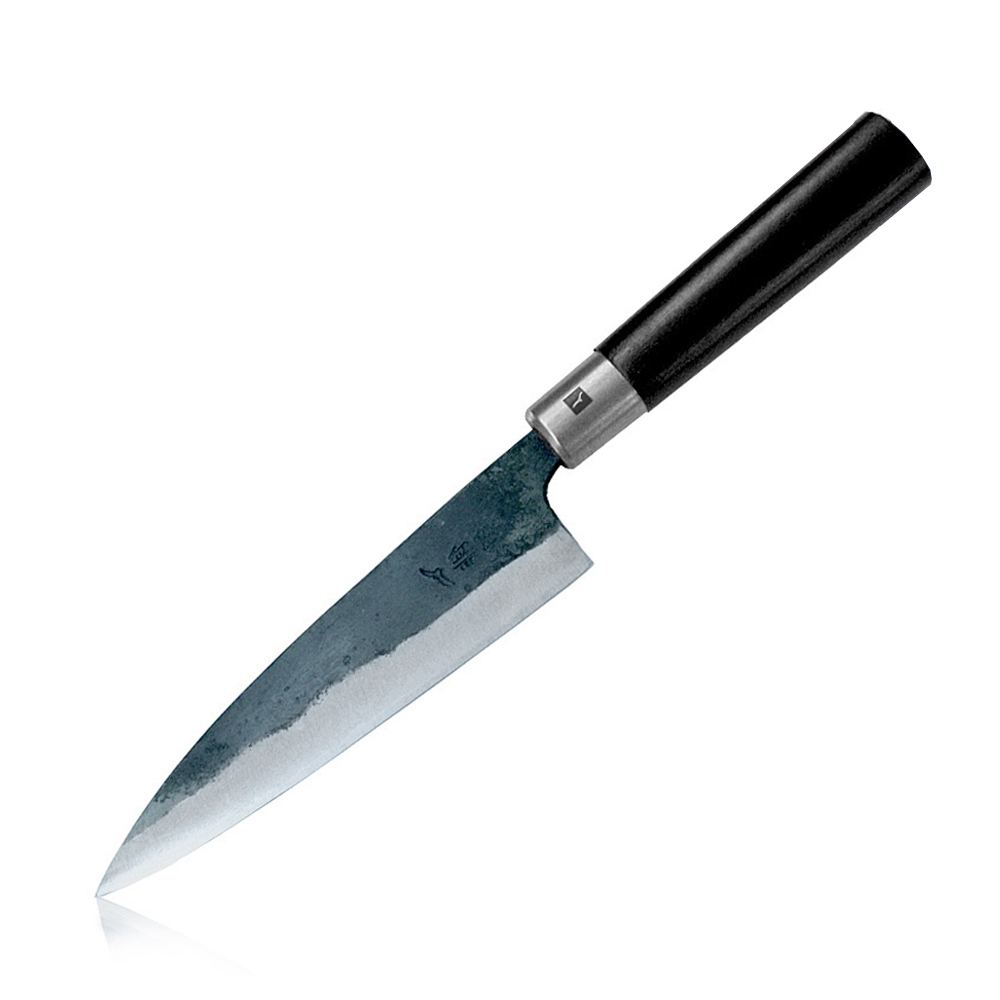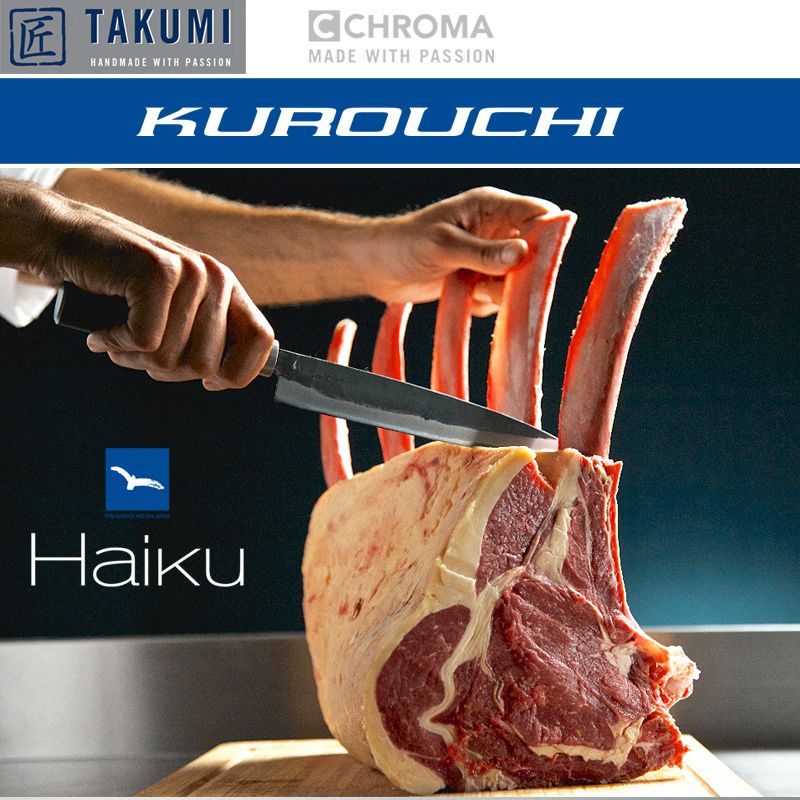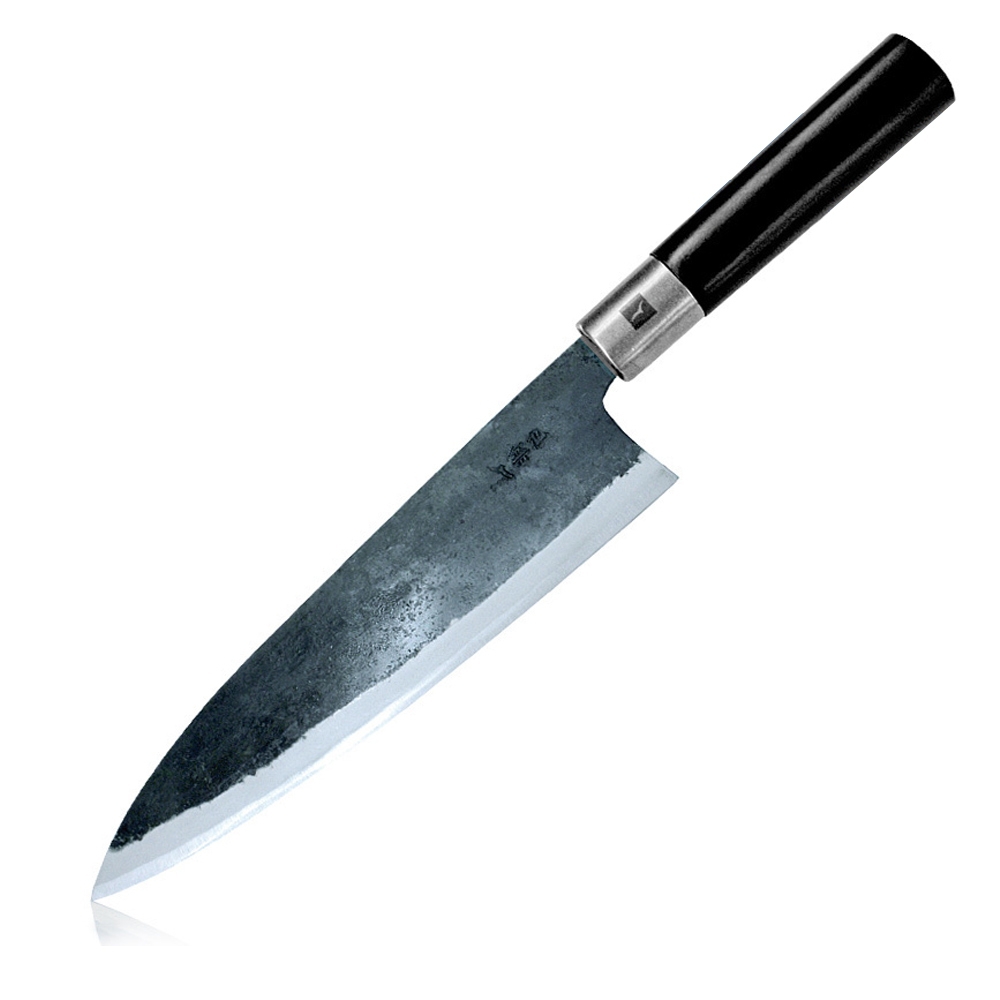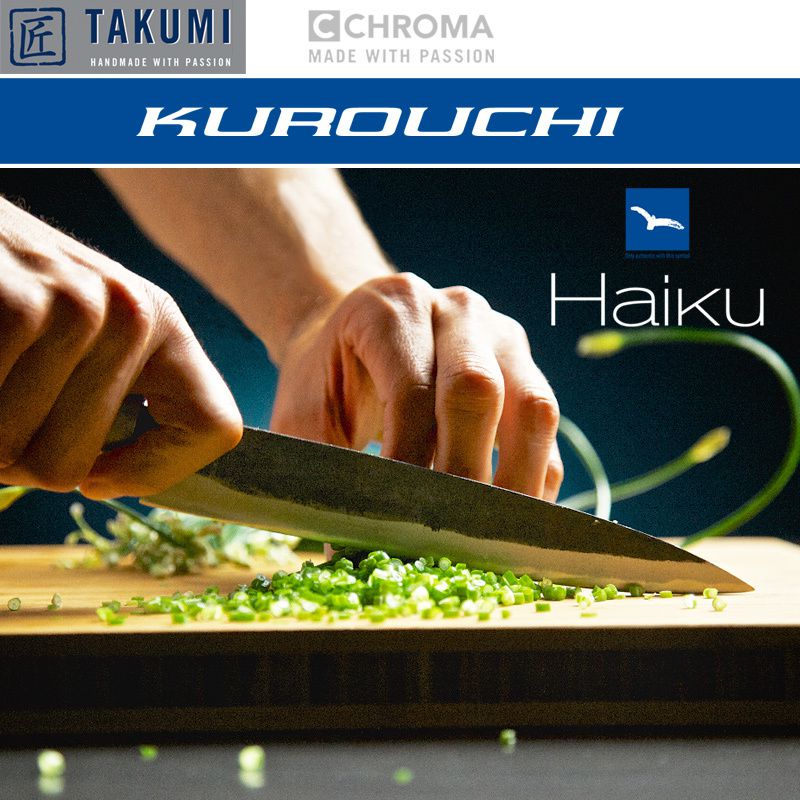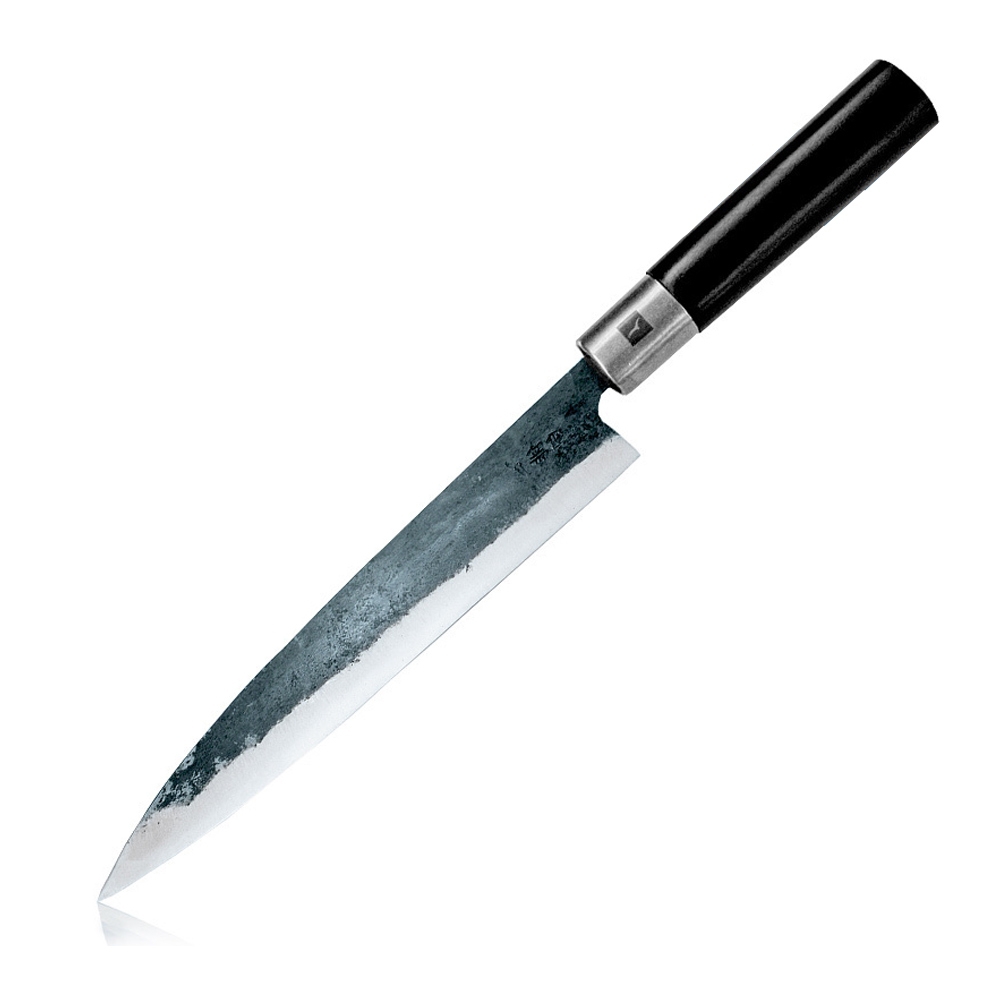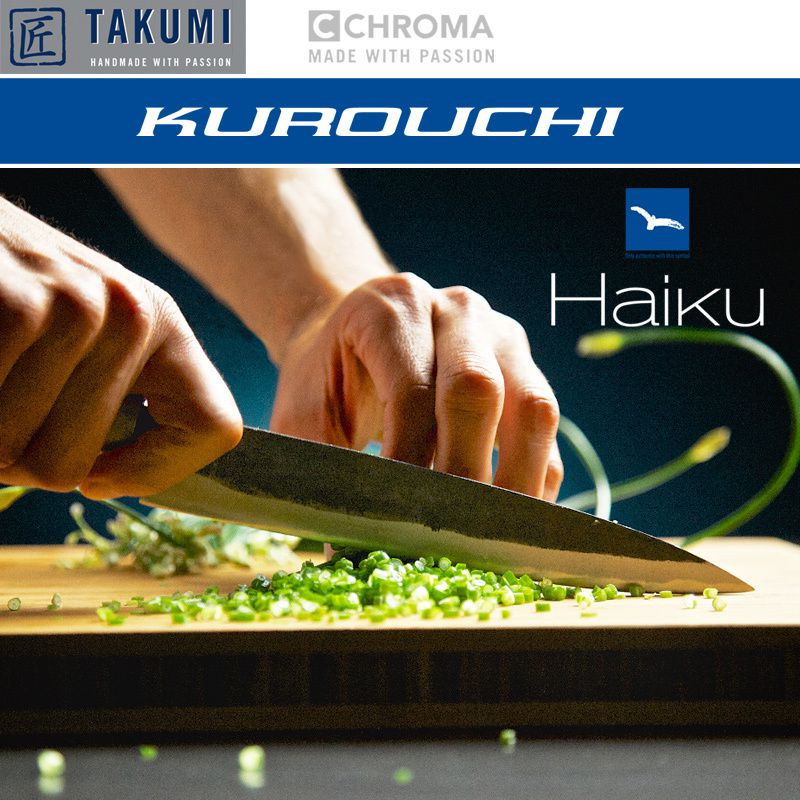CHROMA Haiku Kurouchi Tosa - B-09 Ko-Yanagi 21 cm
blade lenght: 21 cm / 8,3"
polished on both sides
Carving Knife - Perfectly balanced for coarse and fine chopping, cutting and jointing. For cutting up meat, fish, fruit and vegetables.
CHROMA Haiku Kurouchi are part of the prestigious TAKUMI ranges of CHROMA Cnife
A decidedly reasonably priced debut to the world of extremely sharp cnives - The CHROMA TAKUMI Cnife Series. CHROMA HAIKU Kurouchi Cnives rise to any challenge, just as a TAKUMI cnife should.
Even fresh out of production, the sharpness of the blade will take your breath away. With regular use of a good sharpening stone, as with all TAKUMI Cnives, you will see that the cutting performance of what you thought to be an ordinary kitchen cnife will rise to never before reached levels of sharpness. Suddenly the slicing of radishes or carrots becomes an experience in and of itself. This is made possible by the unique design of the cnife's blade. A “sandwich construction” that is made up of extremely hard, blue AOKO Steel at the center, and then finished with protective layers of consecutively softer iron.
KUROUCHI Cnives owe their characteristic, archaic nature to their birthplace - the Tosa region of Southern Japan. The Tosa Region is known for its long tradition of forging cnives, and also for its wild, raw and furrowed landscape, which lends its spirit to the KUROUCHI blade and gives this cnife its unmistakable, untamed nature.
After it has been forged, the blade of the CHROMA HAIKU Kurouchi is left raw and unpolished; only the cutting edge glitters metallically.
Translated from the Japanese, Kurouchi carries a meaning similar to “black-forged”. Because of its artful hand finishing and somewhat primal form, we are proud to call it the “Ur-Messer”, which translates to “Original Cnife”.
CHROMA HAIKU Kurouchi - Introduction to the CHROMA TAKUMI line of cnives.
The Kurouchi cnife is, so far, the only cnife which fully meets the strict requirements of the CHROMA inspectors for a TAKUMI cnife without being manufactured in SAKAI.
It was actually quite by chance that the little blacksmith’s shop was discovered by a CHROMA employee in the rugged Tosa region of Japan. At that time, the blacksmith thanked him for his interest by giving him a cnife as a present. It disappeared,
however, in the sample room of CHROMA headquarters in Japan. Some months later, the cnife came to light and by further chance ended up in the hands of a friendly sushi chef who desperately wanted to acquire more cnives of this kind. What followed were long negotiations with the blacksmith and the usual countless quality tests, all of which the cnife passed with almost unbelievable ease. Finally, the Kurouchi cnife was welcomed into the CHROMA family.
CHROMA HAIKU Kurouchi cnives meet all the requirements of a TAKUMI cnife. Upon delivery, the blade already possesses a breathtaking keenness, and, as with all TAKUMI cnives, by regrinding with a good grindstone, its cutting capacity can be raised to a level that is practically unattainable for traditional kitchen knives. Cutting even carrots or radishes thus becomes a real experience. This is made possible by the special design of the blade.
A “sandwich construction”, produced with a core made from extremely hard, blue AOKO steel which is subsequently protected by softer layers of iron, makes it possible to achieve an optimal hardness of 61° HRC at the cutting edge.
Cnives like the CHROMA HAIKU Kurouchi are particularly popular with Japanese fishermen. The Funayuki blade design has the shape of the typical Japanese fishermen’s knives. As far as the blade is concerned, the Funayuki is a cross between a Deba and a Yanagi. However, it is not as compact as a Deba, but rather is endowed with a more conspicuous tip and an almost straight blade line, similar to a Yanagi. The Kurouchi cnife owes its archaic character to its place of origin, the Tosa region in southern Japan.
The Tosa region is well-known, apart from its long tradition of cutlery, for its rugged, wild and furrowed landscape, which is also reflected in the Kurouchi blades and lends this cnife the unmistakable quality of untamed nature.
A particular and striking detail of the handle of the CHROMA HAIKU Kurouchi is the stainless steel bolster, with the Mekugi pin, also of stainless steel, typical of the Haiku line. The handle, in accordance with the blade, is done in glazed black magnolia hardwood.
After being forged, the CHROMA HAIKU Kurouchi is worked so that the blade remains dull black, and only the extremely sharp cutting edge stands out with a metallic gleam. Translating from the Japanese, Kurouchi means, more or less, “black forged”.
Because of its artistic workmanship and its original qualities, we proudly call it “the original cnife”.


